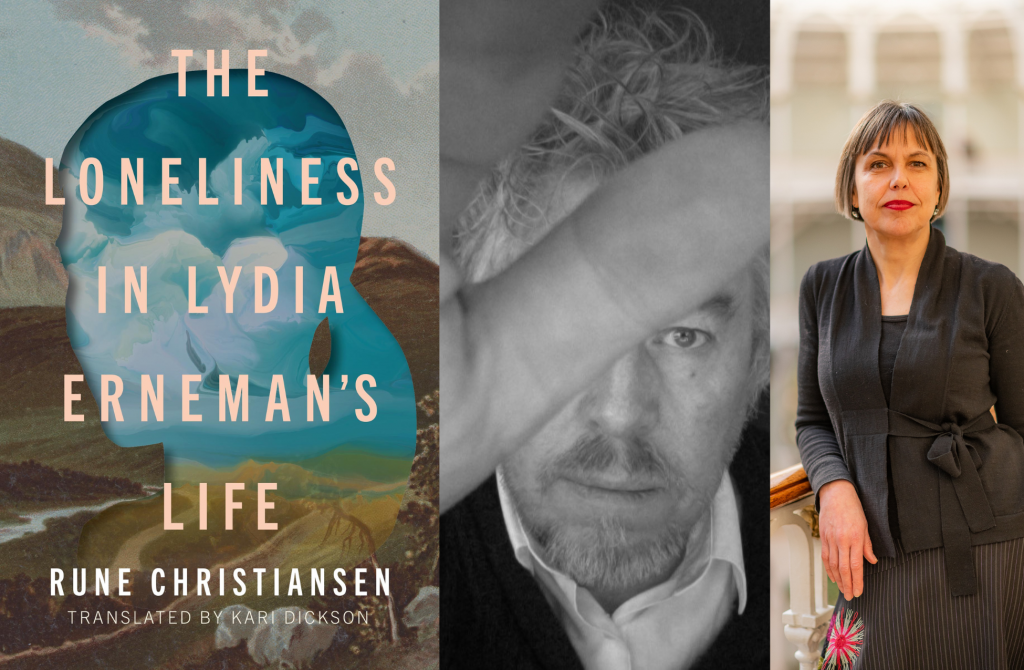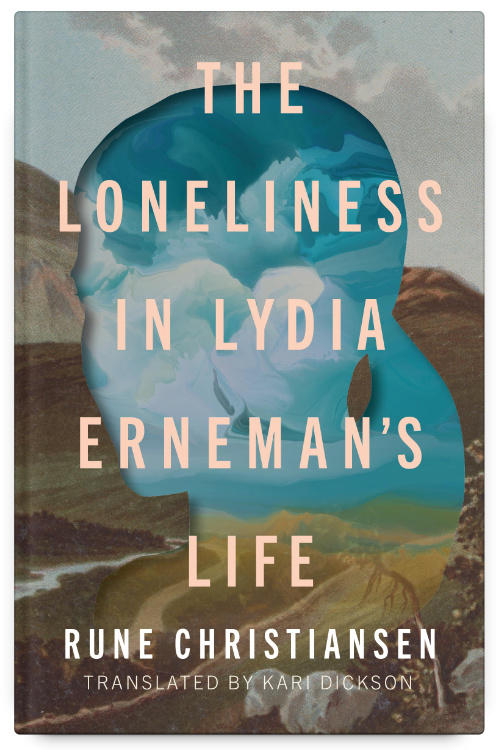Spring 2023 Fiction Preview: The Loneliness in Lydia Erneman’s Life by Rune Christiansen, translated by Kari Dickson

Today’s Spring 2023 Fiction Preview features the latest title in our Literature in Translation Series, The Loneliness in Lydia Erneman’s Life by Rune Christiansen, translated by Kari Dickson.
Winner of the Brage Prize, the most prestigious award in Norwegian Literature, The Loneliness in Lydia Erneman’s Life is a quiet, beautiful exploration of solitude and how we relate to other beings. Having grown up as an only child in Northern Sweden, Lydia is used to isolation and being on her own. In a series of poetic sketches, Lydia tends to the animals in her community, spends time with her aging parents, and falls in love. Despite an increasing need for closer human contact that begins to encroach on her contented solitude, ultimately it is Lydia’s satisfaction with her inner life that speaks of an elegance and hope often lost in these clamouring times.
“Light in tone, soft and delicate, [Rune Christiansen’s sentences] awaken your vigilance to what lies almost imperceptibly beneath the great details of everyday life. This is a book to cherish for a long time.” —Mappalibri, Belgium.
Enjoy the excerpt below! The Loneliness in Lydia Erneman’s Life will be released on June 6, 2023 and is available now for pre-order, either from our online shop or from your local independent bookstore.

Before all else, it should be said that Dagmar Erneman, mother of Lydia Erneman, almost drowned in her late teens when crossing a river on horseback. She had been out for a ride and was going to ford the river at the usual place, but the animal stepped into a hollow between the smooth stones and lost its balance. Dagmar fell under the heavy body, and as they floundered, she hit her head. She was found at dusk by two boys on their way home from a fishing trip. She was lying apparently lifeless on the bank, and the horse was beside her, neighing and pawing the ground with its hooves. It took the boys a few desperate minutes to heave her up across the saddle and take her back to the village. The episode took place in the fifties, in Frankrike in Jämtland, in the north of Sweden, but Dagmar’s daughter, Lydia, did not hear about it until many years later, when she was nineteen and sitting eating with her parents. Her mother had set the table out on the terrace.They helped themselves to food straight from the pans and barely exchanged a word until Lydia announced, unexpectedly, that she was going to move. She had been offered a place at the Swedish University of Agricultural Science in Uppsala down south and wanted to go, as her dream was to become a vet and work with horses, nothing else. Perhaps it was just natural concern, now that Lydia wanted to leave home, that caused Dagmar to grasp her daughter’s hands across the table and tell her about this experience from her youth. Lydia looked at her mother and said she knew how to look after herself, but then her father, Johan, said so had her mother, she had been around horses since she learned to walk. Despite their opposition, when the autumn came around, Lydia Erneman left the family farm in Krokom. She drove all the way to Uppsala in the south and, in the years that fol- lowed, passed her exams with brilliant results. She scarcely had time for love, just the odd half-hearted affair, and days could pass between each time she saw her friends. This was not because she was shy or modest, but rather because she was consumed by her studies and the desire to be finished. She wanted to get on, she said, she wanted to work, she longed to fill her life with this work that she loved. She was neither restless nor unhappy in her own company. In fact, it was not unusual for her to think what a good life she had. Of course, she wished she had someone to share her every day with, someone to give herself up to, but this longing was not such that it diminished her existence in any way. She never had to fear being bored. Was she naive in her enthusiasm? No, she was not naive, she was rather level-headed and stubborn.
Rune Christiansen is a Norwegian poet and novelist. One of Norway’s most important literary writers, he is the author of more than 20 books of fiction, poetry, and nonfiction. He has won many prestigious awards, including the 2014 Brage Prize for his bestselling novel, The Loneliness in Lydia Erneman’s Life. Fanny and the Mystery in the Grieving Forest was shortlisted for the same prize and published in English by Book*hug Press in 2019. He is also a professor of creative writing. Christiansen lives just outside of Oslo, Norway.
Kari Dickson is a literary translator. She translates from Norwegian, and her work includes literary fiction, children’s books, theatre, and nonfiction. In 2019, Book*hug Press published her translation of Rune Christiansen’s Fanny and the Mystery in Grieving Forest, and, in 2021, her co-translation of Mona Høvring’s Because Venus Crossed an Alpine Violet The Day I Was Born. She is also an occasional tutor in Norwegian language, literature and translation at the University of Edinburgh, and has worked with the British Centre for Literary Translation (BCLT) and the National Centre for Writing. Dickson lives in Edinburgh, Scotland.

